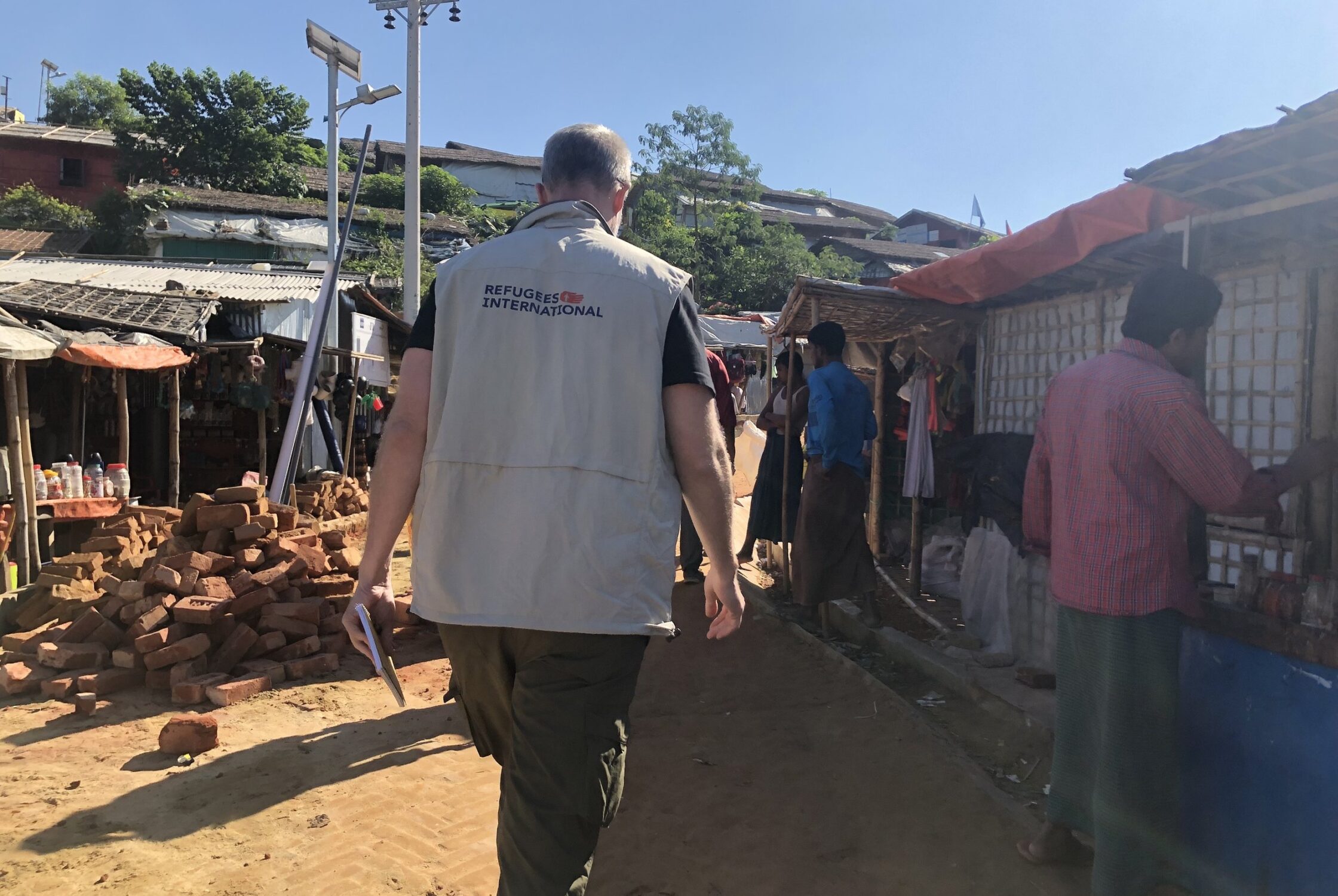Why We’re No Longer Using the Word “Mission” to Describe Our Travel for Research, Reporting, and Advocacy

For more than forty years, Refugees International employees and affiliates have traveled to regions experiencing some of the world’s most severe displacement crises to investigate first-hand the challenges displaced people face, create policy solutions, and demand action. The following statement, drawn from a January 4, 2022 email to staff from Refugees International president Eric P. Schwartz, explains why the organization will now find alternatives to the word “mission” to refer to such travel.
Dear Colleagues:
Informed by a request from the Refugees International (RI) Diversity, Equity, and Inclusion (DEI) Committee, I write to inform friends and counterparts that, henceforth, in our published products and public statements, RI will find alternatives for the word “mission” when that word would have been used to describe international (or domestic) travel for research, reporting, and/or advocacy.
Discussion:
As suggested, this decision comes after a request I received from our DEI Committee that we replace the word mission in our communications. As you probably know, the concern relates to the possible implications of—or inferences that could be drawn from—the use of the word.
As a reporting and advocacy organization that bases much of its work on visits to countries impacted by forced migration challenges, the term “mission” has long been a part of our lexicon.
There are several relevant points relevant to the meaning of the word:
- To my knowledge, the word mission comes from the Latin word that means “to send” (although the etymological discussion can become complicated).
- The word mission has been used for at least several centuries to convey intentions and efforts to influence and impose upon foreign populations beliefs and perspectives of a sending institution or organization. This association is especially relevant to the field of humanitarianism. In particular, nineteenth century measures to provide international humanitarian assistance to populations in need was in some measure driven by institutions and organizations whose overall scope of activities included these intentions and efforts. The word has also been associated with human hierarchies that are inconsistent with the principle of humanity, which is a key tenet of humanitarianism. And it is for these reasons that there is discomfort with use of the word. While this discomfort is without prejudice to the honorable and critically important contributions of humanitarians throughout human history, the discomfort remains.
Of course, the word has also been used historically to convey a trip with a significant and substantial purpose of any type, as well as an overseas presence. And it has been used to mean a strategic, existential, or otherwise critical objective of an individual or organization (as in “mission statement”).
Words matter, as they reflect our beliefs, our intentions, and our biases.
At the same time, words can indeed have multiple legitimate meanings, and we are not banishing the word mission completely from our lexicon (indeed, that is not the request I received). My view against complete elimination of the word is buttressed by the facts that the word does indeed have multiple meanings historically, and that its use in other contexts does not appear to be a trigger. In that respect, informed opinion about use of the word among those who care seriously about responsible humanitarian action is not uniform (for some of the very reasons described in this note), and there is limited evidence that use of the word mission (especially in itself) is a consuming concern to those impacted by disasters around the world.
On the other hand, I do believe the points made in the second bullet, above, to be important: that the word mission has been used historically to convey intentions and efforts to influence and impose upon foreign populations profound perspectives of a sending institution, and that it has also been associated with human hierarchies inconsistent with the principles of humanity.
Thus, we will move forward on the approach I have identified at the outset of this note.
Many thanks, and kind regards,
Eric Schwartz
President
Refugees International